Words that describe an action are called verbs. Verbs are of various kinds like action verb, helping (auxiliary) verb, regular verb, irregular verb, transitive verb, intransitive verb. Auxiliary verb is further divided into some types and Modal Verb is one of them. Modal verbs are used to help the main verbs to make it easy and understand.
Modal verbs are words used to help main verbs. They are actually used to tell the ability, permission, inability, potentiality of the main verb etc. Modal verbs are actually a type of auxiliary verbs and auxiliary means helping verbs. The name shows us that modal verbs are there to assist our main verbs.
In this lesson, we are going to learn all the Modal Verbs with their examples and sentences. Breaking news for you is that all the model verbs are Available in PDF File which is totally free of cost.
Modal Verbs
A Modal verb is a kind of auxiliary (helping) verb that assists the main verb to indicate ability, permission, expectation, potentiality, obligation and possibility.
There are 10 types of modal verbs
- Can
- Could
- Would
- Will
- Should
- Ought to
- Must
- May
- Might
- Shall
FREE PDF Available to Download at the bottom of Page
In this lesson, we will discuss all these modal verbs in very simplest way making these very easy to understand.
- Can
Can is the type of modal verb used to show ability/skill, inability, permission, request, offer, possibility.
Ability
- I can speak five languages
- She can drive.
Inability
- I cannot teach Arabic
- He cannot swim
Permission
- Can I borrow your camera?
- Can I speak to Ahmed?
Possibility
- Smoking can cause cancer.
- It can get very hot there these days.
Offer
- Can I help you?
- I can send this letter for you.
Request
- Can you give me glass of water?
- Can I go to sleep?
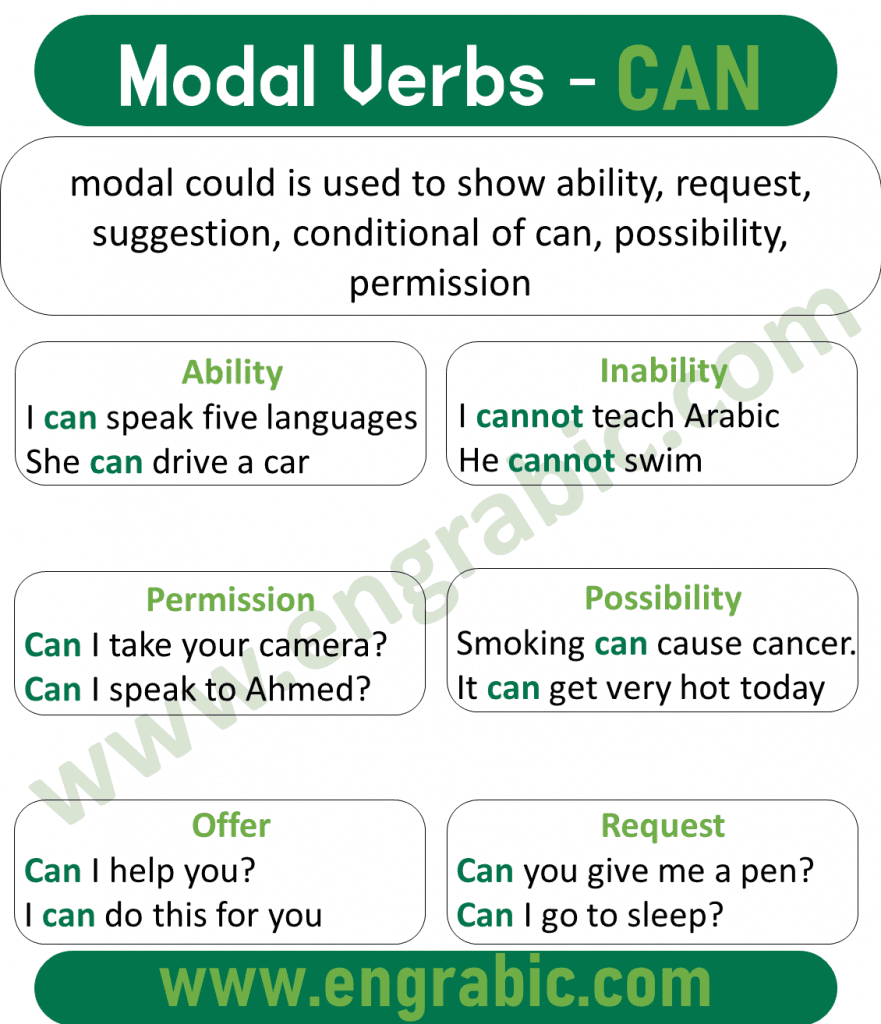

FREE PDF Available to Download at the bottom of Page
- Could
The modal could is used to show ability, request, suggestion, conditional of can, possibility, permission etc.
Ability
- I could play cricket.
- I could smell something burning.
Request
- Could you hand me the camera?
- Could I go to the sleep?
Suggestion
- I could help you with Arabic.
- You could go to swimming if you are interested.
Conditional of Can
- I could pass the exam if I had worked hard.
Possibility
- A lot of crime could be prevented.
- You could have done first.
Permission
- Could I borrow your laptop?
- Could I speak to Ahmed?
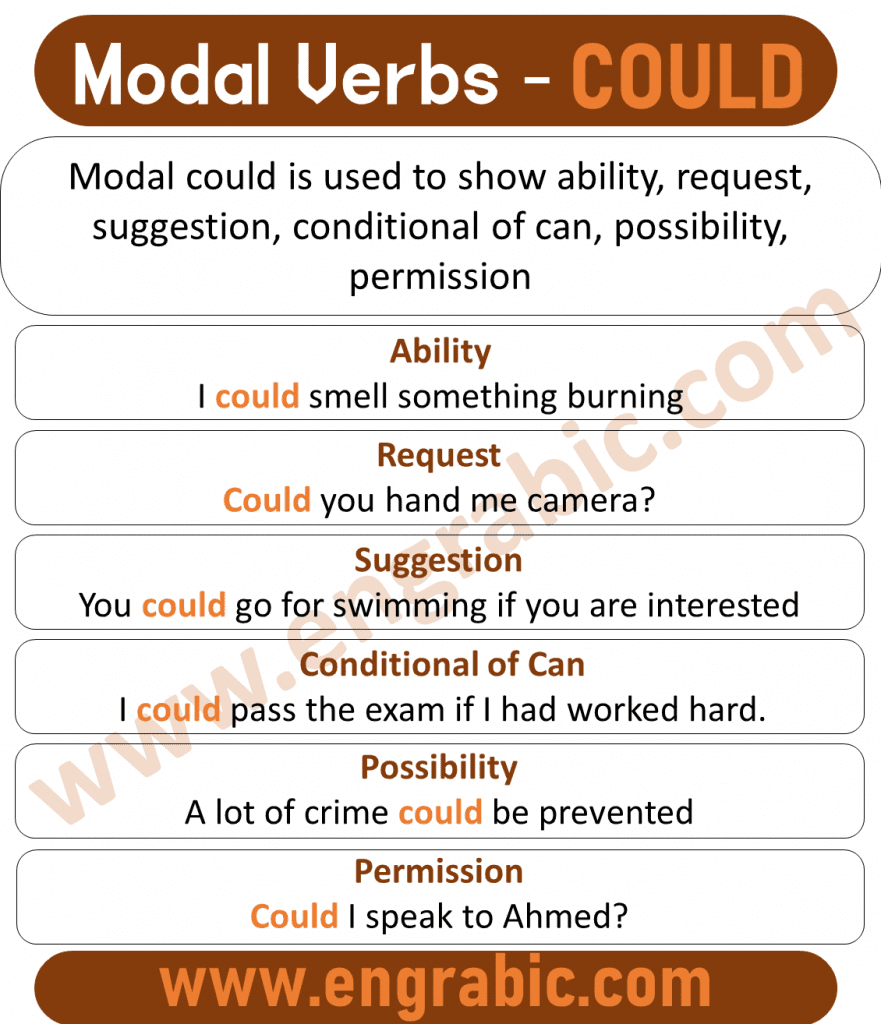

FREE PDF Available to Download at the bottom of Page
- Will
The modal “Will” can be used to show future, request, offer, refusal, conditional etc.
Future
- I will play cricket.
- I will run fast
Request
- Will you please pass the camera?
- Will you please get a side?
Offer
- I will pay for you
- We will give you a ride home
Refusal
- She will not give you money
- I will not let you play with them
Conditional
- If it rains, I will bring umbrella
- Your mum will be happy if you win the competition
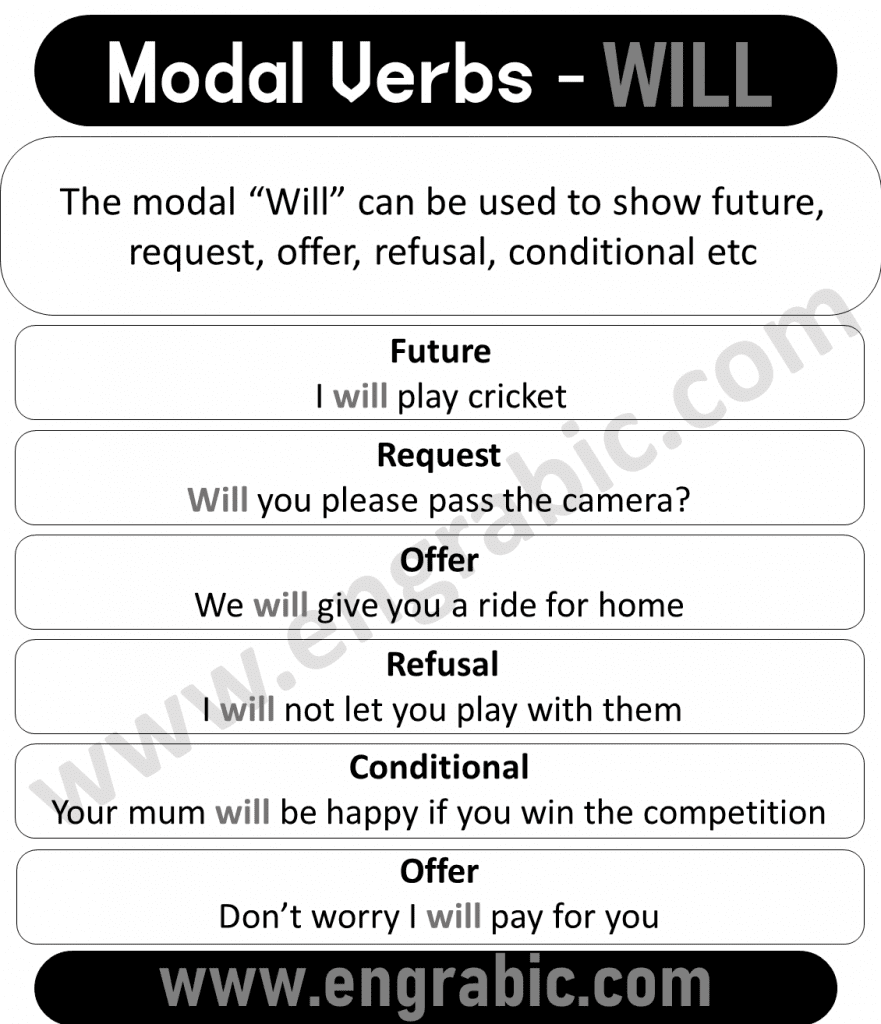

FREE PDF Available to Download at the bottom of Page
- Would
Modal “Would” is used to express refusal, request, offer, conditional, future in the past etc.
Request
- Would you hand me the pencil?
- Would you help me?
Offer
- I would help you with Spanish.
- They would go to the movies if you are interested.
Conditional
- If I had a car, I would drive around the world.
Future in The Past
- She promised she would help me.
- She said that she would tech me.
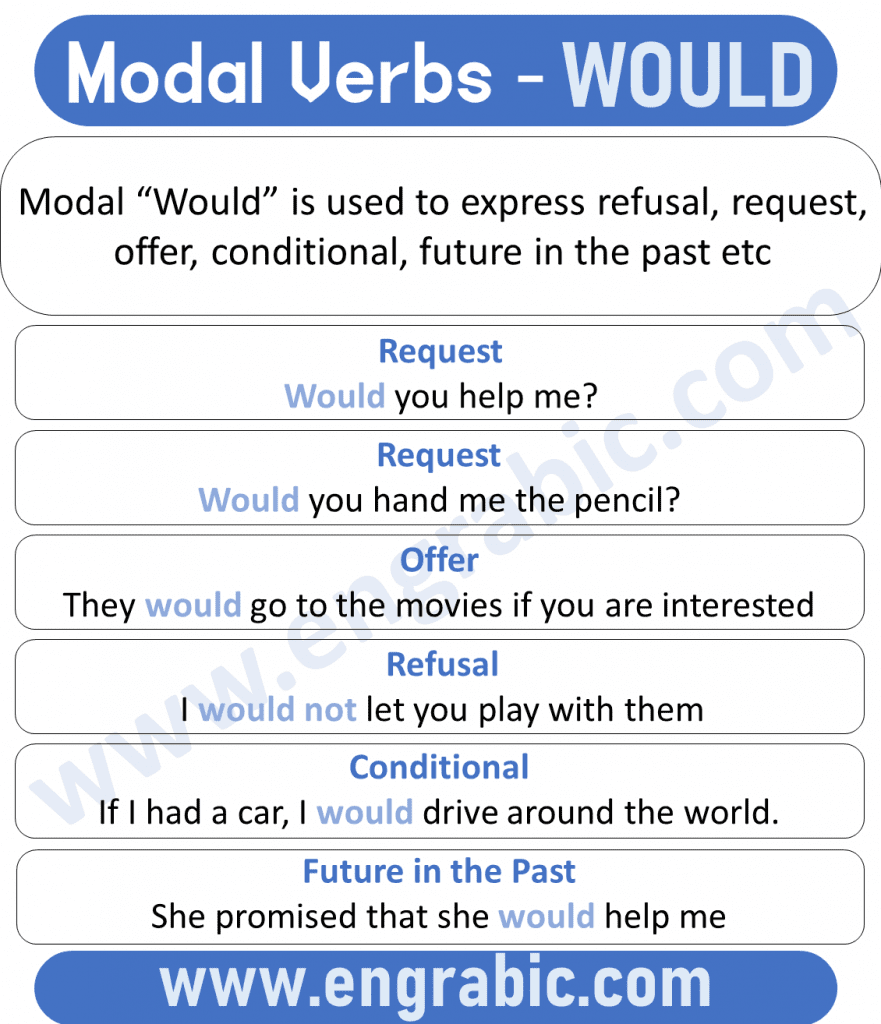

FREE PDF Available to Download at the bottom of Page
- Shall
Shall is used to give suggestions, instruction, offers, promises, conformation etc
Confirmation
- I shall turn 20 next week.
- I shall meet you there at 11
Instruction
- What shall I do with your mail
- You shall not pass!
Offer
- Shall I wait for you?
- I shall make the arrangements for you
Promise
- You shall be the first person to know
- I shall get you a new bike for your birthday
Suggestion
- Shall I get a pizza for dinner tonight?
- Shall we take a taxi home?
FREE PDF Available to Download at the bottom of Page
- Should
Should is used to show advice, obligation, probability etc
Advice
- You should eat more fruits and vegetables.
- I think we should wait for her now.
Obligation
- You should walk to work.
- You should do more exercise.
Probability / Expectation
- A ticket to Lahore should cost a lot.
- This should not be Afzal’s house.
FREE PDF Available to Download at the bottom of Page
- May
Modal ‘May’ is used to show desire, permission, request, probability, aim / objective
Permission
- You may use my camera
Request
- May I wear your shirt?
Probability
- It may rain tomorrow
Aim/Objective
- I work hard so that I may pass
FREE PDF Available to Download at the bottom of Page
- Might
Modal is used to show suggestion, possibility, conditional etc
Suggestion
- You might try this cake.
- You might not see him tomorrow.
Possibility
- It might rain today.
- I might possibly go to the theater tonight
Conditional
- If I had worked hard, I might have passed the exam.
- If I enter the contest, I might win!

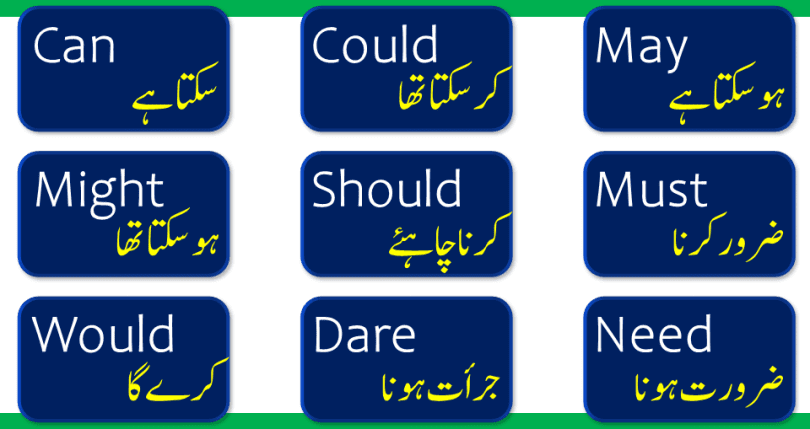
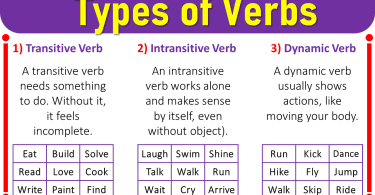
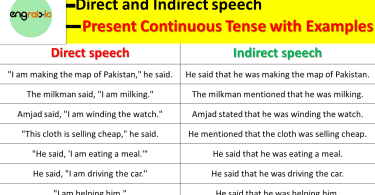
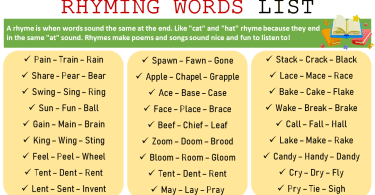
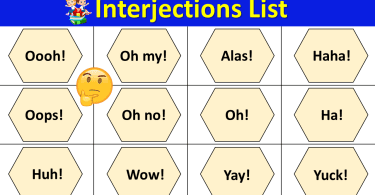
Leave a Comment